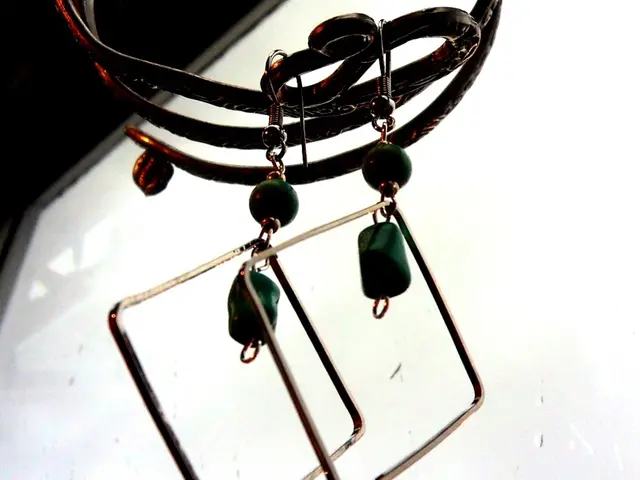Navigating Dementia Care: A Son's Odyssey
Tom Geiser's Dementia Odyssey
Tom Geiser, a 48-year-old St. Louis father, embarks on a transformative journey following his mother's Parkinson's and Alzheimer's diagnoses. His candid account offers valuable insights for family caregivers navigating similar challenges.
After his mother's passing, driven by empathy and determination, Tom shares his experiences on a podcast designed to help family caregivers thrive amidst these trials.
The Diagnosis Timeline
Tom's mother's Parkinson's was first diagnosed in 2013, with Alzheimer's revealing itself not long after. Her symptoms, initially subtle, gradually escalated as her cognitive abilities waned.
A Difficult Decision: Finding the Dementia Care They Need
As Tom's father struggled to provide the necessary care for his Parkinson's and Alzheimer's-stricken wife, the family was faced with the daunting task of deciding on suitable dementia care. Economic constraints compounded the difficulty, and they turned to the enigmatic figure known as the "Medicaid Man" for assistance.
Quantifying the Quest for a Suitable Nursing Home
Finding a nursing home that accepts Medicaid and can meet a patient's specific care needs isn't a simple process. In many cases, suitable facilities might only account for a small fraction of the available options, making the search arduous and daunting.
Navigating the Maze: Tom's Memory Test Experience
Curious about memory retention and his own capacity for cognitive decline, Tom attempts the "our platform memory test," expressing his appreciation for the engaging and challenging exercise.
The Burden of Decision: What is the Hardest Part?**
Tom candidly shares his feelings of discomfort and guilt about the decision to place his mother in a nursing home. This ongoing sense of unease stems from his inherent caregiver instincts, the perceived shortcomings in the care provided, and societal pressure to be the "perfect son."
A Battle Against Stigma: Cancer, Dementia, and Politics
Tom vehemently contends that dementia should be treated as a serious illness rather than an expected part of aging, likening it to terminal cancer. He passionately criticizes the careless use of the term "dementia" as an insult, arguing that it is hurtful and is disrespectful to those who are affected by the disease.
The Heart of the Matter: What was the Hardest Part of Being a Caregiver?
Dealing with the profound cognitive decline of his mother was an emotional and overwhelming experience for Tom. He recalls moments of heartbreak as he struggled to reconcile the woman he knew with the fragmented personality that replaced her.
Memories Cherished: The Power of Simple Moments**
One of Tom's most cherished memories involves countless hours spent playing ping-pong with his mother during her Parkinson's and early Alzheimer's days. This shared passion, powered by their mutual competitive spirit, remains a poignant symbol of their bond.
Preventative Measures: A Fight Against Aging**
Aware of the factors contributing to Parkinson's and Alzheimer's, Tom is proactive in maintaining his physical health through healthy eating, regular exercise, and minimizing sodas and snacks. He recognizes the role that exercise plays in preserving brain plasticity.
Like Tom, Stand with Us: The Call to Action
Tom implores individuals not directly affected by dementia to prepare for its eventuality. By taking proactive measures, such as participating in research initiatives and increasing public awareness about the disease, we can help those on the frontlines and ensure a future free of cognitive decline.
Embrace the opportunity to protect your brain and make a lasting impact on countless lives. Take the "our platform memory test" today and aid scientific advancements in the battle against dementia.
Enrichment Data:
- General: Dementia affects millions worldwide, Alzheimer's being the most common form. Dementia can significantly impact a person's memory, cognitive abilities, and overall quality of life, making it essential to find suitable care for those suffering from the disease and their caregivers.
- Dementia and Caregiving: Caring for a loved one with dementia can be emotionally, mentally, and physically exhausting. Being a caregiver requires patience, understanding, and abundant resources. It's crucial for caregivers to take care of their own mental and physical health to ensure they can continue providing quality care for their loved one.
- Memory Tests and Research: There are various memory tests and research platforms dedicated to understanding cognitive health and the factors contributing to memory loss. These tests often provide valuable insights into an individual's cognitive abilities and can help researchers develop potential treatments and strategies for preserving memory.
- Medicaid and Long-Term Care: Medicaid is a vital safety net for many low-income individuals, providing coverage for critical services such as long-term care. However, finding a nursing home that accepts Medicaid can be challenging, as not all facilities participate in the program. This leaves families with limited options when seeking quality care for their loved ones amidst financial constraints.
- Politics and Dementia Stigma: Dementia, often confused with normal aging, is facing a stigma that prevents the funding and research necessary to combat the disease. Misuse and careless employment of terms like "dementia" to mock or insult individuals are harmful and insensitive, especially to those dealing with the disease and their loved ones. Acknowledging dementia as a serious illness is crucial in advocating for more research, funding, and resources dedicated to finding a cure.
Science and health-and-wellness are intertwined in Tom Geiser's quest to understand dementia. Although his mother's diagnoses with Parkinson's and later Alzheimer's largely focused on mental health aspects, Tom's fight against this disease extends to the broader domain of physical health as he prioritizes exercise and healthy eating to potentially ward off its impact in his own life.
In his podcast, Tom advocates for combating the stigma surrounding dementia by treating it as a serious illness, similar to terminal cancer, and discouraging its use as an insult. He also urges the public to participate in memory tests and research initiatives, utilizing tools such as the "our platform memory test," to contribute to scientific advancements in the fight against this pervasive disease that primarily affects the aging population.








